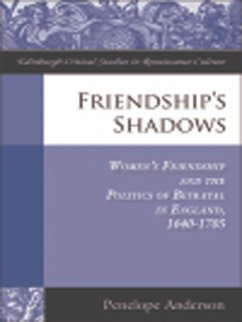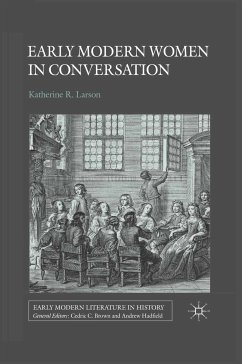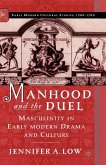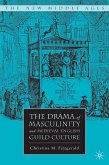Penelope Anderson's original study changes our understanding both of the masculine Renaissance friendship tradition and of the private forms of women's friendship of the eighteenth century and after. It uncovers the latent threat of betrayal lurking within politicized classical and humanist friendship, showing its surprising resilience as a model for political obligation undone and remade. Incorporating authors from Cicero to Abraham Cowley and Margaret Cavendish to Mary Astell, the book focuses on two extraordinary women writers, the royalist Katherine Philips and the republican Lucy Hutchinson. And it explores the ways in which they appropriate the friendship tradition in order to address problems of conflicting allegiances in the English Civil Wars and Restoration. As Penelope Anderson suggests, their writings on friendship provide a new account of women's relation to public life, organized through textual exchange rather than bodily reproduction. Key Features:Studies early modern women's friendship in depth for the first time Offers an account of the classical and humanist discourse of friendship by revealing the centrality of betrayal to the Aristotelian, Ciceronian, and Epicurean traditionsIntervenes within recent feminist and queer theory by showing textual friendship to be an alternative account of women's relation to public lifeArticulates the links between women's literary writing and political theories such as contract theory, natural sociability, and patriarchalismContributes to the growing interest in early modern women's writing, drawing on extensive archival materials and texts
Dieser Download kann aus rechtlichen Gründen nur mit Rechnungsadresse in A, B, BG, CY, CZ, D, DK, EW, E, FIN, F, GR, HR, H, IRL, I, LT, L, LR, M, NL, PL, P, R, S, SLO, SK ausgeliefert werden.









